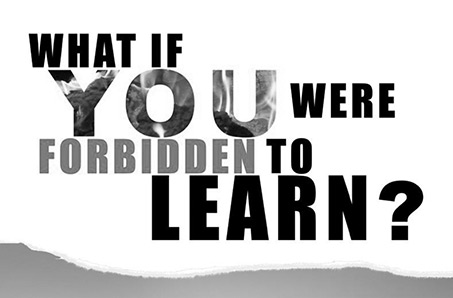Doc shows persecution of Bahá'í in Iran
 CREDIT: EDUCATION UNDER FIRE
CREDIT: EDUCATION UNDER FIREA screening of the documentary Education Under Fire takes place at Western University on February 27.
Post-secondary students in Canada have the freedom to believe in any religion they choose. Sometimes we forget that this is a freedom, a luxury that doesn't always exist in countries across the globe.
Since the late 1980s, Iranians who practice the Bahá'í faith have been denied a higher education simply because of their religion. The UWO Association for Bahá'í Studies at Western University is working to make this issue public.
There is an estimated five to six billion Bahá'ís around the world. Currently there are 30 members in the Bahá'í group at Western.
“The mandate in the club is the study of the history, philosophy and the study of the religion in a more academic fashion. We hold study sessions as well as film screenings that address issues within the faith or outside the faith,” said Sama, who asked that his last name be withheld, the vice-president of events for the association.
The group is hosting a film screening of Education Under Fire, followed by a Q & A by a panel of UWO professors, to raise awareness about the refusal of education in Iran. The screening will be held in the Health Sciences Building (room 35) on February 27 at 7 p.m.
The Bahá'í faith is one of the world's youngest religions. “It was founded in the mid-19th century by Bahá'u'lláh in Persia, which is modern-day Iran. Essentially, Bahá'u'lláh taught that we're all created by the same god and so therefore we should all be unified,” explained Marsh Bindseil, president of the UWO Association for Bahá'í Studies.
“The main principle is unity; unifying the world and people without assimilation, as well as trying to approach religion on a more empirical, rational and logical level,” added Sama. The Bahá'í faith is the largest non-Muslim minority religion in Iran.
“Ever since the religion was founded in that country, the country's government has really taken a lot of measures to persecute the community there, partly because the type of peace and unity they're advocating is something that the government feels threatened by,” said Bindseil. He added that Bahá'ís have difficulty finding work and are often expelled or not admitted to university education because of their faith.
Several years ago, the International Bahá'í community set up The Bahá'í Institute for Higher Education (BIHE) to offer learning opportunities for members of the Bahá'í faith and other minority groups that were denied education. Most of the classes are taught online or in basements.
Education Under Fire tells the story of this institution. “In the past few years, the Iranian government has started to round up and imprison people who are working for this institution, including students and professors. There are a handful of Bahá'ís who are currently in jail simply because they were trying to provide access to students who otherwise couldn't get it in the country,” said Bindseil.
Sama has family members who are among those imprisoned for teaching at BIHE. “My dad has two cousins who are in prison because they taught at the BHIE program. Essentially they were given their sentence; they're going to be in prison for about four years,” he said. “It's sad because they have young children.”
One of his second cousins came to Canada to complete his Master's degree in Child Phycology at the University of Ottawa. Many universities in India, Canada, and the U.S. support and recognize an undergraduate degree from BHIE. Sama's cousin returned to India to teach the next generation of students plagued by inequality.
“They understand the risks, absolutely, I think they're willing to (take) the risk because someone else took the risk before them to teach for them,” said Sama.
For Sama, Bindseil and the rest of the Bahá'í club, it's time to take a stand.
“Our hope is that the majority of people who come to the screening don't know much about the issue already and are willing to learn about it. Our primary goal is to raise awareness about the issue and start a meaningful discussion,” said Bindseil. Last year the group showed the film to a group of students and community members who then decided to write letters to the Iranian Government and Canadian Office of Foreign Affairs addressing their concerns.
“We hope to put pressure on the Iranian government to stop these persecutions, our secondary goal is to really try to effect change and show the world's governments that people actually care about this issue,” Marsh exclaimed.
“The Iranian government is very conscious of their image in international politics — what country isn't? They don't want that negative light in international politics so making this a forefront issue would definitely shed a negative light on them and put some pressure on them to stop,” said Sama.
“I think it hits home because we live in a country where we have access to education regardless of ethnicity or background; it's something that in Canada we don't have to worry about and just for us, imagining if we lived in a different country where we wouldn't have that right or that ability. I think that it's something that as students we should be offended by, we have a social responsibility to make people aware of these issues.”
You can find a preview for the documentary at educationunderfire.com.













